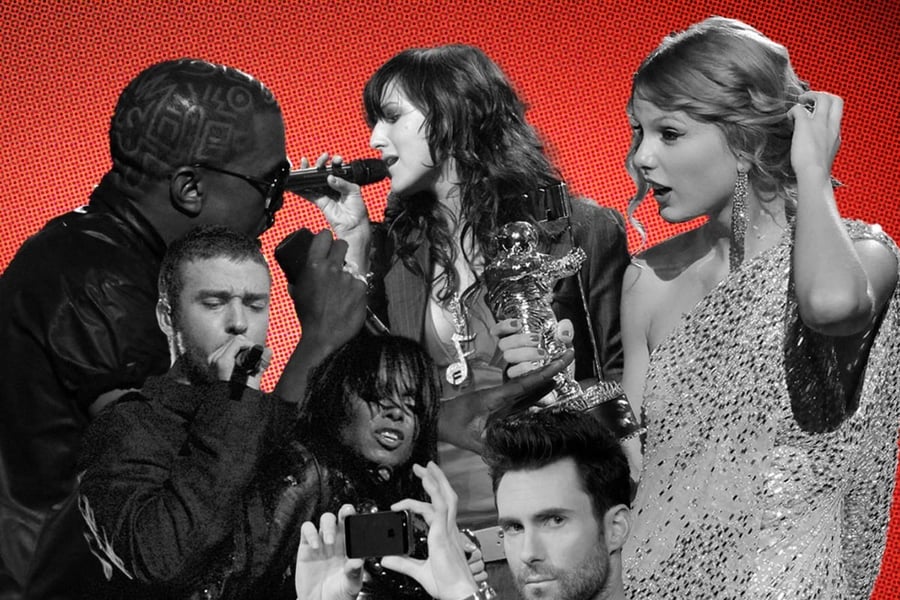The 50 Worst Decisions in Music History
Horrible business moves, artistic blunders, deeply questionable moral judgment — with appearances by Adam Levine, Kiss, Kanye West, and many more

Kanye West, Justin Timberlake, Janet Jackson, Ashlee Simpson, Adam Levine, Taylor Swift IMAGES IN COMPOSITE BY CHRIS HASTON/NBCU PHOTO BANK/GETTY IMAGES; KMAZUR/WIREIMAGE; DANA EDELSON/NBCU PHOTO BANK; JEFF KRAVITZ/FILMMAGIC; ZHENGSHUN TANG/GETTY IMAGES
IN THE WORDS of the 18th-century poet Alexander Pope, to err is human. But most of us regular humans make mistakes on pretty small scales, like leaving our house keys at work or forgetting to order fries in the drive-through. When rock stars screw up, they do it in epic, spectacular ways, with consequences that are often catastrophic.
They can lead to decades of bitter questions: “What if I didn’t wear that pink tank top in the music video? What if I didn’t say we were bigger than Jesus? What if I hadn’t given the Nazi salute at that British train station?”
But there’s no take-backs in life. Rock stars, like the rest of us, have to live with the consequences of their actions forever. In this list, we look back at the long history of rock stars’ fuckups and call out the 50 biggest ones. To be clear, we limited this largely to professional decisions that impacted careers. Many rock stars have done horribly destructive things when it comes to drugs or their treatment of women, but that’s a whole other list.
From Rolling Stone US























































































